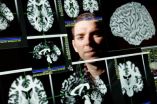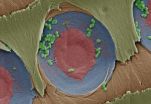(Press-News.org) Despite prolonged combat missions to Iraq and Afghanistan, there has been no overall increase in mental health problems among UK soldiers, finds a review of the available evidence, published online in the Journal of the Royal Army Medical Corps.
But certain groups of soldiers do seem to be more vulnerable to mental ill health on their return home, while alcohol problems continue to give cause for concern among regulars, say the researchers from King's College London.
They retrieved published research looking at the psychological impact of deployment to Iraq and Afghanistan on the UK Armed Forces, dating back 15 years. And where possible, they compared the research findings with those published on the mental health of US military personnel.
The researchers focused on Iraq and Afghanistan because of the lengthy and challenging nature of the conflict experienced by British soldiers in these two countries, including protracted counter insurgency and repeated exposure to improvised explosive devices (IEDs), snipers, and suicide bombers.
Their analysis, which draws on 34 studies, shows that, overall, most UK regulars returning from deployment have remained psychologically resilient, despite the adversities they faced.
Rates of post-traumatic stress disorder, or PTSD, among most UK regulars returning from deployment range between 1.3% and 4.8%, the evidence suggests; the prevalence of PTSD among the UK general population is 3%, say the authors.
Not unexpectedly, troops involved in direct combat are more likely to experience mental health issues than their peers not deployed in this way.
The rate of PTSD among these soldiers is around 7%, the data indicate. But not all combat troops have the same level of risk: elite forces, such as the Royal Marines and airborne personnel report fewer mental health problems.
Combat troops are also twice as likely to experience mild traumatic brain injury (mTBI)—short term loss of consciousness or altered mental state following a head injury or blast explosion—as those not deployed in combat. But mTBI rates are consistently lower than among the US military and the rate of mTBI in combat remains very low indeed, say the authors.
Depression and anxiety are the most frequently reported common mental health disorders among soldiers who have served in Iraq and Afghanistan. But overall rates are no higher than among soldiers who have not been deployed to these regions—or indeed the general population, the research indicates.
Harmful drinking, however, continues to give cause for concern, affecting up to one in five regular soldiers, while aggressive and violent behaviour is also more likely among those returning from deployment, particularly soldiers in combat roles who are experiencing mental health issues.
But despite the unique stressors soldiers face, rates of suicide and self-harm are lower than they are among the general population, except for army recruits under the age of 20.
And the evidence suggests that levels of social support during childhood and after leaving the Army have a greater impact on suicide rates than deployment.
Overall, UK troops fare better than their US peers in terms of their mental health, possibly because UK Army recruits tend to be older, have shorter tours of duty, and have better access to healthcare, say the authors. But UK troops are more likely to report harmful levels of drinking than their US peers.
There is also some evidence to suggest that good training, leadership and unit cohesion may help to stave off mental health problems, in addition to which the Army has invested heavily in initiatives to mitigate the effects of trauma and ease soldiers' return home.
These include 'third location decompression'(TLD)—36 hours of social, supportive, and educational intervention after prolonged operational deployment before returning home—and the Trauma Risk Management Programme (TRiM)—peer support designed to pick up vulnerability to mental health problems in the wake of a traumatic incident.
"The evidence presented [here] shows that, in the main, UK military personnel have remained resilient in spite of having suffered significant numbers of fatalities and casualties in Iraq and Afghanistan," write the authors.
They acknowledge that there will be "a small but important group of veterans" who will need specialist mental healthcare services in the years ahead, and that it is too early to tell what the longer term psychological impacts of service in Iraq and Afghanistan might be.
But they conclude: "There appears to be some evidence that the considerable efforts the UK Armed Forces have made to ensure that deployed personnel are well trained, well led, cohesive, have access to high quality mental health services and a number of evidence based mitigation measures, such as TLD and TRiM, are important."
INFORMATION:
The mental health of the UK Armed Forces in the 21st century: resilience in the face of adversity Online First doi 10.1136/jramc-2013-000213
Mental health of most UK troops serving in Afghanistan and Iraq is 'resilient'
But certain groups of soldiers seem to be more vulnerable, finds evidence review
2014-02-27
ELSE PRESS RELEASES FROM THIS DATE:
Passive smoking linked to increased miscarriage, stillbirth, and ectopic pregnancy risk
2014-02-27
Passive smoking is linked to a significantly increased risk of miscarriage, stillbirth and ectopic pregnancy, finds a large observational study, published online in Tobacco Control.
The risk appears to be cumulative, with risk heightened in parallel with the length of time exposed to second hand smoke, the findings indicate.
It is well known that smoking during pregnancy significantly increases the risks of miscarriage and birth complications. What is less clear is whether passive smoking exerts similar effects, and if there are particularly critical periods of exposure ...
Spotted seal study reveals sensitive hearing in air and water
2014-02-27
Two spotted seals orphaned as pups in the Arctic are now thriving at UC Santa Cruz's Long Marine Laboratory, giving scientists a rare opportunity to learn about how these seals perceive their environment. In a comprehensive study of the hearing abilities of spotted seals, UCSC researchers found that the seals have remarkably sensitive hearing in both air and water.
The findings, published February 26 in the Journal of Experimental Biology, are important for understanding how spotted seals might be affected by noise from human activities in the rapidly changing Arctic ...
Secondhand smoke exposure linked to adverse pregnancy outcomes
2014-02-27
BUFFALO, N.Y. — Secondhand smoking is linked with pregnancy loss, including miscarriage, stillbirth and tubal ectopic pregnancy, according to new research from scientists at Roswell Park Cancer Institute (RPCI) and the University at Buffalo (UB). The study findings, published online by the journal Tobacco Control, mark a significant step toward clarifying the risks of secondhand smoke exposure.
"This study demonstrated that pregnancy outcomes can be correlated with secondhand smoking. Significantly, women who have never smoked but were exposed to secondhand smoke were ...
Febrile illnesses in children most often due to viral infections
2014-02-27
This news release is available in German. Most children ill with fever in Tanzania suffer from a viral infection, a new study published in the New England Journal of Medicine shows. A research team led by Dr. Valérie D'Acremont from the Swiss Tropical and Public Health Institute in Basel and the Policlinique Médicale Universitaire in Lausanne systematically assessed the causes of febrile illnesses in Tanzanian children. According to the results, in most cases a treatment with antimalarials or antibiotics is not required. The finding has the potential to improve the ...
Breast cancer cells less likely to spread when one gene is turned off
2014-02-27
COLUMBUS, Ohio – New research suggests that a protein only recently linked to cancer has a significant effect on the risk that breast cancer will spread, and that lowering the protein's level in cell cultures and mice reduces chances for the disease to extend beyond the initial tumor.
The team of medical and engineering researchers at The Ohio State University previously determined that modifying a single gene to reduce this protein's level in breast cancer cells lowered the cells' ability to migrate away from the tumor site.
In a new study published in the journal ...
One gene influences recovery from traumatic brain injury
2014-02-27
CHAMPAIGN, Ill. — Researchers report that one change in the sequence of the BDNF gene causes some people to be more impaired by traumatic brain injury (TBI) than others with comparable wounds.
The study, described in the journal PLOS ONE, measured general intelligence in a group of 156 Vietnam War veterans who suffered penetrating head wounds during the war. All of the study subjects had damage to the prefrontal cortex, a brain region behind the forehead that is important to cognitive tasks such as planning, problem-solving, self-restraint and complex thought.
The ...
Caesarean babies are more likely to become overweight as adults
2014-02-27
Babies born by caesarean section are more likely to be overweight or obese as adults, according to a new analysis.
The odds of being overweight or obese are 26 per cent higher for adults born by caesarean section than those born by vaginal delivery, the study found (see footnote).
The finding, reported in the journal PLOS ONE, is based on combined data from 15 studies with over 38,000 participants.
The researchers, from Imperial College London, say there are good reasons why many women should have a C-section, but mothers choosing a caesarean should be aware that ...
Cows are smarter when raised in pairs
2014-02-27
Cows learn better when housed together, which may help them adjust faster to complex new feeding and milking technologies on the modern farm, a new University of British Columbia study finds.
The research, published today in PLOS ONE, shows dairy calves become better at learning when a "buddy system" is in place. The study also provides the first evidence that the standard practice of individually housing calves is associated with certain learning difficulties.
"Pairing calves seems to change the way these animals are able to process information," said Dan Weary, corresponding ...
Impact on mummy skull suggests murder
2014-02-27
Blunt force trauma to the skull of a mummy with signs of Chagas disease may support homicide as cause of death, which is similar to previously described South American mummies, according to a study published February 26, 2014 in PLOS ONE by Stephanie Panzer from Trauma Center Murau, Germany, and colleagues, a study that has been directed by the paleopathologist Andreas Nerlich from Munich University.
For over a hundred years, the unidentified mummy has been housed in the Bavarian State Archeological Collection in Germany. To better understand its origin and life history, ...
Tree branch filters water
2014-02-27
A small piece of freshly cut sapwood can filter out more than 99 percent of the bacteria E. coli from water, according to a paper published in PLOS ONE on February 26, 2014 by Michael Boutilier and Jongho Lee and colleagues from MIT.
Researchers were interested in studying low-cost and easy-to-make options for filtering dirty water, a major cause of human mortality in the developing world. The sapwood of pine trees contains xylem, a porous tissue that moves sap from a tree's roots to its top through a system of vessels and pores. To investigate sapwood's water-filtering ...
LAST 30 PRESS RELEASES:
Study finds Earth may have twice as many vertebrate species as previously thought
NYU Langone orthopedic surgeons present latest clinical findings and research at AAOS 2026
New journal highlights how artificial intelligence can help solve global environmental crises
Study identifies three diverging global AI pathways shaping the future of technology and governance
Machine learning advances non targeted detection of environmental pollutants
ACP advises all adults 75 or older get a protein subunit RSV vaccine
New study finds earliest evidence of big land predators hunting plant-eaters
Newer groundwater associated with higher risk of Parkinson’s disease
New study identifies growth hormone receptor as possible target to improve lung cancer treatment
Routine helps children adjust to school, but harsh parenting may undo benefits
IEEE honors Pitt’s Fang Peng with medal in power engineering
SwRI and the NPSS Consortium release new version of NPSS® software with improved functionality
Study identifies molecular cause of taste loss after COVID
Accounting for soil saturation enhances atmospheric river flood warnings
The research that got sick veterans treatment
Study finds that on-demand wage access boosts savings and financial engagement for low-wage workers
Antarctica has lost 10 times the size of Greater Los Angeles in ice over 30 years
Scared of spiders? The real horror story is a world without them
New study moves nanomedicine one step closer to better and safer drug delivery
Illinois team tests the costs, benefits of agrivoltaics across the Midwest
Highly stable self-rectifying memristor arrays: Enabling reliable neuromorphic computing via multi-state regulation
Composite superionic electrolytes for pressure-less solid-state batteries achieved by continuously perpendicularly aligned 2D pathways
Exploring why some people may prefer alcohol over other rewards
How expectations about artificial sweeteners may affect their taste
Ultrasound AI receives FDA De Novo clearance for delivery date AI technology
Amino acid residue-driven nanoparticle targeting of protein cavities beyond size complementarity
New AI algorithm enables scientific monitoring of "blue tears"
Insufficient sleep among US adolescents across behavioral risk groups
Long COVID and recovery among US adults
Trends in poverty and birth outcomes in the US
[Press-News.org] Mental health of most UK troops serving in Afghanistan and Iraq is 'resilient'But certain groups of soldiers seem to be more vulnerable, finds evidence review




